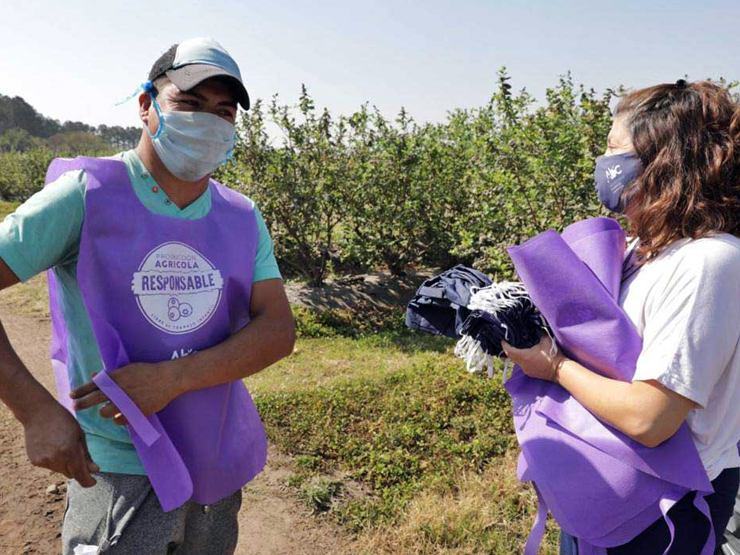In this blueberry harvest, a system involving harvesters, contractors, producers, municipalities, and unions is being implemented. The aim is to establish child protection regulations in productive communities.
Recent control operations in Concordia, where officials reported no detections of child labor, are the result of prevention efforts that the sector has been implementing.
Social commitment
The blueberry harvest started strongly this October and is expected to conclude in early January. While the 2020 production will be at similar levels to previous years, the sector is not oblivious to the social impact generated by the pandemic in the country: increased poverty, higher unemployment and informality, and the lack of protection for vulnerable populations.
In response to this reality, the Association of Blueberry Producers of the Argentine Mesopotamia (APAMA) stated that they have been working for months “on the prevention and implementation of measures to ensure that this 2020 harvest reflects the social commitment that the sector seeks to reinforce.”
For over a year, the Argentine Blueberry Committee (ABC), of which APAMA is a part, along with Desarrollo y Autogestión (DYA), an NGO specializing in the prevention and eradication of child labor, has been working to implement a voluntary “social compliance system” in the fields: a series of prevention actions, monitoring protocols, and attention protocols to prevent needs from translating into child labor and to promote the education of children and adolescents.
Full article: https://www.diarioriouruguay.com.ar/interes-general/pilotean-un-sistema-que-previene-el-trabajo-infantil-en-el-arndano.htm

